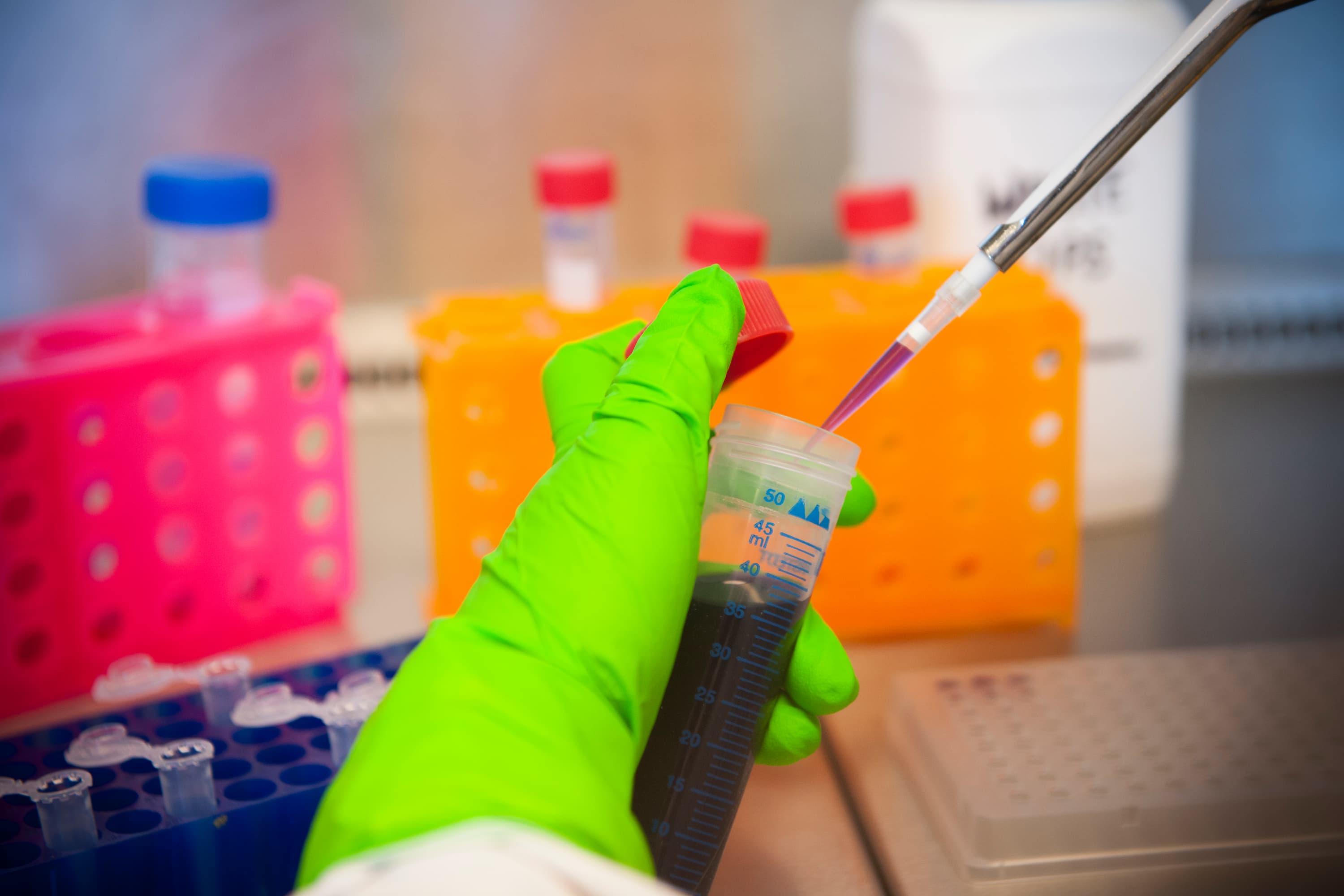Over £600,000 of new research funded.
The latest research, funded by the MND Association has been approved, and we are pleased to share that the following 6 exciting research projects will be funded:
Dr Dezerae Cox, based at the University of Cambridge will be using a specialist technology known as iPSC, which is the process by which stem cells can be created using skin cells. Using this technology, Dr Cox will be looking at how to prevent toxic protein build up that causes damage to motor neurones as a way of treating MND.
At King’s College London, Dr Caroline Vance will spend the next three years investigating the FUS protein which is created by the FUS gene. Dr Vance will be studying how this protein usually function in the brain and comparing this with how it behaves in MND. This could help identify a potential treatment for people with MND who are affected by the FUS protein.
Dr Sarah Mizielinska, also at King’s College London will be investigating the C9orf72 gene and how the proteins it produces disrupt waste disposal processes. If waste is not cleared effectively from brain cells, it builds up and clumps together affecting cell function and eventually leading to cell death. This three-year project will hopefully design new treatments to prevent the death of brain cells and thus the normal functioning in C9orf72-related MND.
At the University of Sheffield, Dr Kurt de Vos will be focusing on mutations in the NEK1 gene. This gene mutation causes a reduction in the production of a protein, also called NEK1. Dr de Vos will spend the next three years trying to understand why the loss of this protein causes MND by aiming to understand precisely what NEK1 does. This knowledge could then be used to develop effective treatments.
Professor Majid Hafezparast, based at the University of Sussex, will be starting a three year project investigating microRNA and the genes that they affect. MicroRNAs are molecules released by microglia – which are immune cells in the brain. There is increasing evidence that microRNAs play an important role in cell processes in MND, which this project aims to understand.
Based in Paris at Association Institut de Myologie, Dr Maria Grazia Biferi has been awarded an 18 month project grant to investigate ways of improving the delivery of genes that will switch off the damaging DNA repeats within the C9orf72 gene that can cause MND. If successful, the results will enable an improved approach in treatment of C9orf72 MND.

